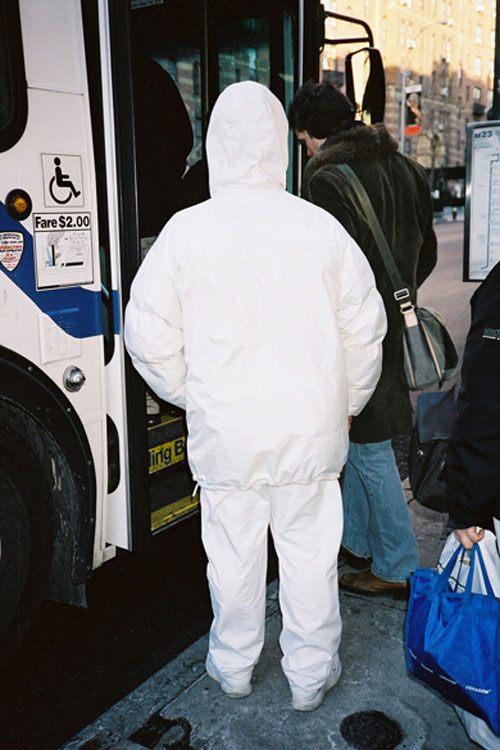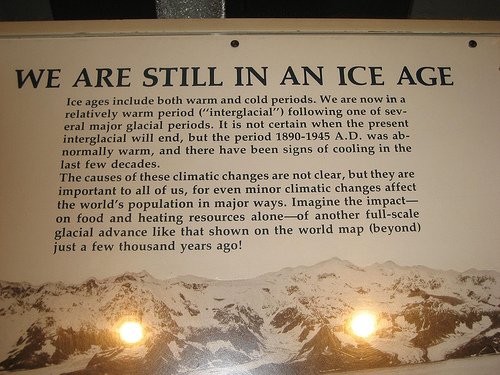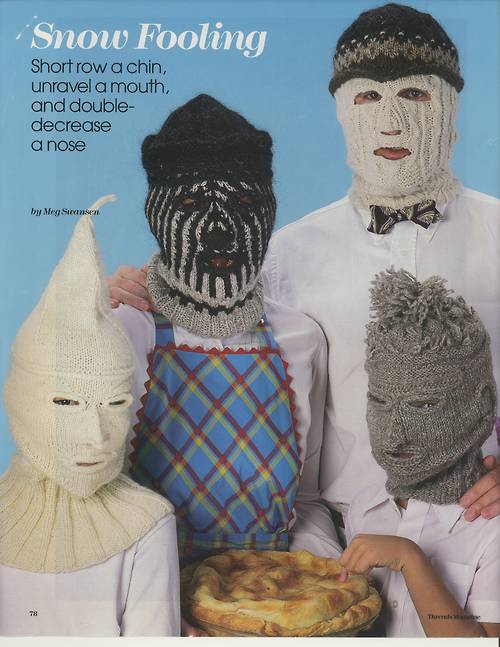Excerpts
“But what if, as in our case, it is winter, so that the Sun has gone away and the grass lies deep beneath the ice?” – William T. Vollmann
The first paragraph of “Fox Hunters” by Breece D’J Pancake
The passing of an autumn night left no mark on the patchwork blacktop of the secondary road that led to Parkins. A gray ooze of light began to crest the eastern hills above the hollow and sift a blue haze through the black bowels of linking oak branches. A small wind shivered, and sycamore leaves chattered across the pavement but were stopped by the fighting-green orchard grass on the berm.
An epigraph for Hopscotch by Julio Cortázar
Everytime it starts to get cool, I mean in the middle of autim, I start gettin nutty ideas like I was thinkin about what was forein and diffrent, like for exsample how I’d like to turn into a swallow and get away and fly to countrys where it gets hot, or be an ant so’s I could get deep into a cave and eat the stuff I stored away durin the summer or be a snake like what they got in the zoO, the ones they keep lockt up in glass cages thats heated so’s they don’t get stiff from the cold, which is what happens to poor human beans who cant buy no close cause the price is to high, and cant keep warm cause theys no keroseen, no coal, no wood, no fule oil and besides theys no loot, cause when you go around sneaky pete that can be real warmin, even tho it aint good to overdo it cause if you overdos it it gets to be a bad habbit and bad habbits is bad for your body just like they is for youre selfrespeck, and when you start goin downhill cause your actin bad in everythin, they aint nobody or nothin can stop you from endin up a stinkin piece of human garbidge and they never gone give you a hand to haul you up outen the dirty much you rollin around in, not even if you was a eaglE when you was young and could fly up and over the highest hills, but when you get old you like a highflyin bomber thats lost its moral engines and fall down outen the sky. I jes hope what I been writin down hear do somebody some good so he take a good look at how he livin and he dont be sorry when it too late and everythin is gone down the drain cause it his own fault.
— César Bruto, What I Would Like to Be If I Wasn’t What I Am (Chapter: “A St. Bernard Dog”)
The first section of Tropic of Cancer by Henry Miller
I am living at the Villa Borghese. There is not a crumb of dirt anywhere, nor a chair misplaced. We are all alone here and we are dead.
Last night Boris discovered that he was lousy. I had to shave his armpits and even then the itching did not stop. How can one get lousy in a beautiful place like this? But no matter. We might never have known each other so intimately, Boris and I, had it not been for the lice.
Boris has just given me a summary of his views. He is a weather prophet. The weather will continue bad, he says. There will be more calamities, more death, more despair. Not the slightest indication of a change anywhere. The cancer of time is eating us away. Our heroes have killed themselves, or are killing themselves. The hero, then, is not Time, but Timelessness. We must get in step, a lock step, toward the prison of death. There is no escape. The weather will not change.
from “Clocking the World on Cue” by Harry Mathews
(all of which happens on January 1, 2001)
In Austin, Ira & Justina, a striking pair, registering at first sight no antipathies but intriguing affinities, wishing to kiss, interiorize their inhibitions, banish their hesitations, skip propositions, & kiss, hip against hip. A swift shifting into a pertinent interior to quit their attire: whipping off pigskin trainers, unbuttoning Ira’s shirt, stripping off Justina’s T-shirt, unzipping her tight-fitting skirt & his khakis, unhooking her brassiere, ripping away panties & briefs, ignoring trinkets, skin to skin. . . . “Wait,” interrupts Justina, insisting, “first this joint,” to forthwith initiate brisk intake & an instantaneous high. Kissing again, Ira’s fingertips graze with finesse Justina’s hair, ribs, & thighs. Justina seizes his wrists & entwines his waist between jittering tibias. Straining, Ira nips her tits. Thrashing, her nips stiffening, Justina tightens her grip. Gratifying Justina’s appetite for kissing with ingenious bites, in his benign yearning Ira using his weight tips her posterior hither, baring Justina’s piping fig. Into this engaging shrine Ira insinuates his inspissating thing, an insertion that ingratiates writhing Justina, inquiring in its penetration of her gripping, shifting pith, whose stunning twinges infuse Ira with stinging fire. He begins panting, his sinews stiffen, he hisses, Justina shrieks. It’s brief, it’s nifty, it’s insane. Supine & sweating, Ira & Justina sigh faint sighs, kiss, grin, & sink into unworrying, transitory night.
The end of “Hollow” by Breece D’J Pancake
Between the clouds and the hill hung the sun, moving fast enough to track, making the snow glisten on the branches. When he looked away from the sun, his eyes were drawn to the cool shadow of a deer standing against the yellow ribbon of sunlight.
He moved slowly, lifting the gun to his face aiming into the shadow, and before the noise splintered into the hollow, he saw a flash of movement. He ran to the place where the deer has stood, but there was no blood. He tracked the animal only ten yards to where it had fallen. It was a doe with a pink lip of wound near her shoulder, but no blood.
Working quickly, he split her hind tendons, threaded them with a stringer, and hoisted her from a low limb. He cut across the throat, and blood dripped into the snow, but as he ran the knife up the belly, something inside the carcass jolted, moved against the knife point. He kept cutting, and when the guts sagged out, a squirming lump fell at his feet.
He kicked the unborn fawn aside, disconnected the doe’s guts, sliced off the hindquarters, and let the rest of the carcass fall for the scavengers to find. he laid three small slices of liver aside in the snow to cool.
Warm doe blood burned his split knuckles, and he washed them with snow, remembering why he had hit Fred Johnson — for spiking Old Man Cox’s coal. he began to laugh. He could see old Man Cox screaming his head off. “Shit,” he laughed, shaking his head.
He bit off a piece of the cool raw liver, and as it juiced between his teeth, watched the final throes of the fawn in the steamy snow. He could not wait to dump the water at the mine tomorrow, and laughed as he imagined the look on Curtis’s face. “Strike,” he muttered over and over.
On a knoll in the ridge, run there by the dogs, the bobcat watched, waiting for the man to leave.
Tags: another lame attempt at comparative literature, breece d'j pancake, buncha dudes talkin bout cold weather and shit, cesar bruto, getting ready for a long winter, harry mathews, henry miller, julio cortazar, metaphorical thermometer, the vollmann is from the ice-shirt, william t. vollmann




That Breece D’J Pancake excerpt is so gorgeous. I’ve never read him before, but really, what a ligature of images.
the man had a hell of an ear that’s fo sho. used alliteration freakishly well, i think. and his control of rhythm is ridic. highly recommend reading his stories, there’s just the one collection.
Thanks Reynard (and Nick, for the post). Going to buy it now. Reads like a more careful Faulkner.
I feel like I mention Faulkner in every post I make here recently. What the hell.
actually i posted this alec, but whatever. i agree with the faulkner comparison, more so than i do with what a lot of people say, which is hemingway, which i think is just kind of silly because he’s way better than that. i think he probably read both hemingway and faulkner, like most all the young dudes, but he probably had more of a faulkner boner than a hemingway chode. however, for my money, i would still take faulkner’s reckless abandon over pancake’s care. i’m a big fan of getting dazed and confused.
Oh shit, sorry, I was/sort of am really high and, geez, I don’t know why I did that. I’m really sorry Reynard. I have no idea why I made that mistake.
No, I would too… And Faulkner’s abandon takes him so far, in so many different directions.
no worries, alec. sometimes i’m amazed we’re all able to put words into an order that makes sense to anyone but ourselves.
love breece pancake. re alliteration, also, you articulate that well. it really can be freakish sometimes. this is one of my favorites, from “trilobites”:
“I lean back, try to forget these fields and flanking hills. A long time before me or these tools, the Teays flowed here. I can almost feel the cold waters and the tickling the trilobites make when they crawl. All the water from the old mountains flowed west. But the land lifted. I have only the bottoms and stone animals I collect. I blink and breathe. My father is a khaki cloud in the canebrakes, and Ginny is no more to me than the bitter smell in the blackberry briers up on the ridge.”
and of course the ending to “trilobites” is pretty awesome, too.
love breece pancake. re alliteration, also, you articulate that well. it really can be freakish sometimes. this is one of my favorites, from “trilobites”:
“I lean back, try to forget these fields and flanking hills. A long time before me or these tools, the Teays flowed here. I can almost feel the cold waters and the tickling the trilobites make when they crawl. All the water from the old mountains flowed west. But the land lifted. I have only the bottoms and stone animals I collect. I blink and breathe. My father is a khaki cloud in the canebrakes, and Ginny is no more to me than the bitter smell in the blackberry briers up on the ridge.”
and of course the ending to “trilobites” is pretty awesome, too.
totally trilobites, thanks andrew
funny how this post became all about breece, but i’m okay with that
i just updated this with a crazy-ass picture i found today that i wish i had found the other day, time is weird like that